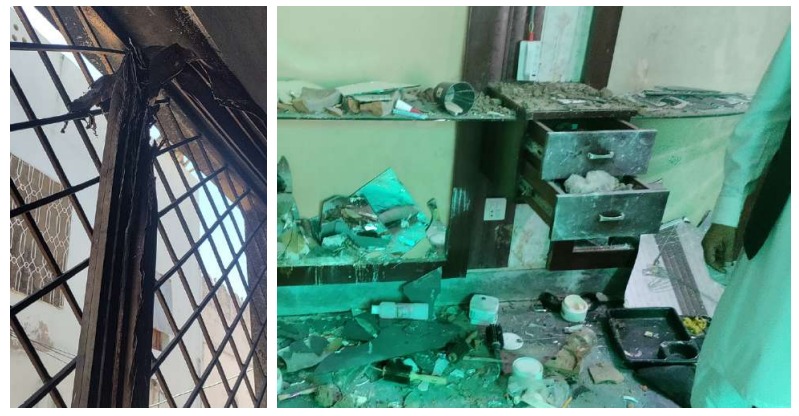News Desk
A tragic incident on May 25, 2024, in Mujahid Colony, Sargodha, saw a large mob attack the home of Nazir Masih and his son, Sultan Masih, following allegations of blasphemy. This violent episode resulted in Nazir Masih’s death after being severely beaten by the mob. A fact-finding mission by the Human Rights Commission of Pakistan (HRCP) has now shed light on the sequence of events and the underlying issues.
The mob, incited by an announcement from a local mosque, accused the Masih family of burning pages of the Holy Quran. Around 2,000 people gathered outside their homes, demanding their execution. Videos of the mob quickly went viral on social media. The police managed to evacuate nine family members, but Nazir Masih was caught by the mob, beaten, and later succumbed to his injuries on June 2-3, 2024.
On May 28, 2024, an HRCP team, including staff member Maheen Pracha, lawyer Asad Jamal, and academic Yaqoob Khan Bangash, visited Sargodha to investigate. They met with religious leaders, community members, police officials, and residents of Mujahid Colony.
Key Findings:
1. Incident Trigger: On May 25, Nazir Masih reportedly burnt rubbish outside his house. Shortly after, an announcement by Manzar Abbas from a nearby mosque accused him and his son of committing blasphemy. This led to a mob armed with rocks, sticks, and petrol bombs gathering outside their homes.
2. Mob Violence: The mob, incited by messages and the mosque announcement, attacked the Masih homes. The police arrived within an hour, used tear gas, and evacuated the family, except for Nazir Masih, who was later found severely beaten. His family’s shoe business was also destroyed.
3. Background Tensions: The mission found that the Masih family had a long-standing dispute with their neighbor, Ayub Gondal, who was also the alleged instigator. This personal conflict was reportedly given a religious twist to maximize the attack’s impact.
4. Community Impact: Local Christian leaders emphasized that while relations with the Muslim majority had been largely cordial, such incidents could lead to impunity without prosecution. The mission noted a history of Christian-Muslim strife in nearby areas and stressed the importance of addressing underlying tensions.
5. Police and Government Response: The mission commended the police for evacuating most of the family but criticized them for not preventing Nazir Masih’s lynching. They also noted the Punjab government’s attempts to downplay the incident.
Recommendations:
The HRCP made several recommendations, including the arrest and prosecution of those involved in the mob attack, improved police response times, and measures to counter hate speech. They also called for the amendment of blasphemy laws to prevent misuse and for stronger interfaith initiatives to promote harmony.
The HRCP’s report underscores the urgent need for justice and measures to protect religious minorities in Pakistan. The incident in Mujahid Colony is a stark reminder of the deep-seated religious and political tensions that can lead to such violence.


